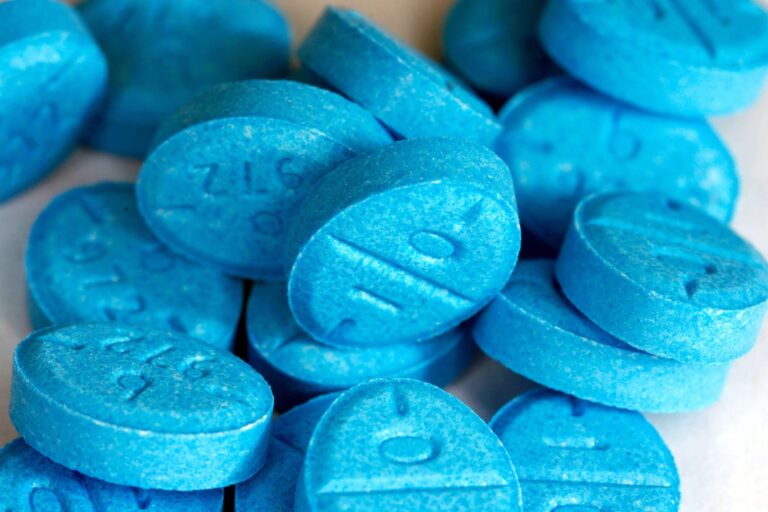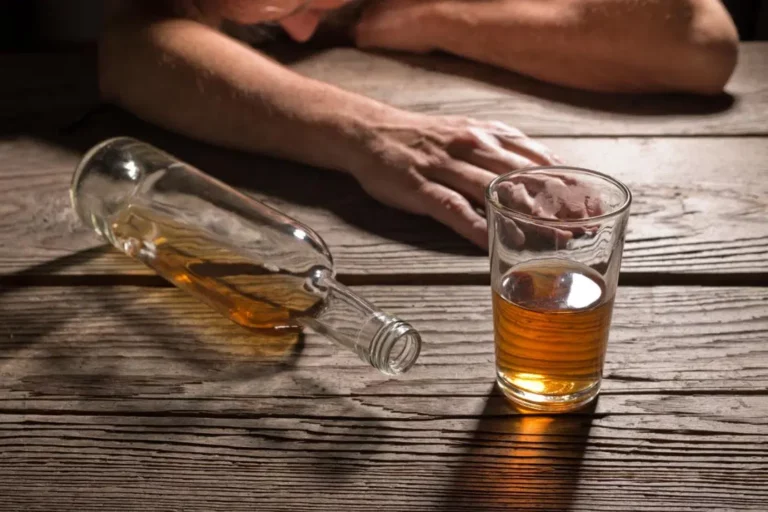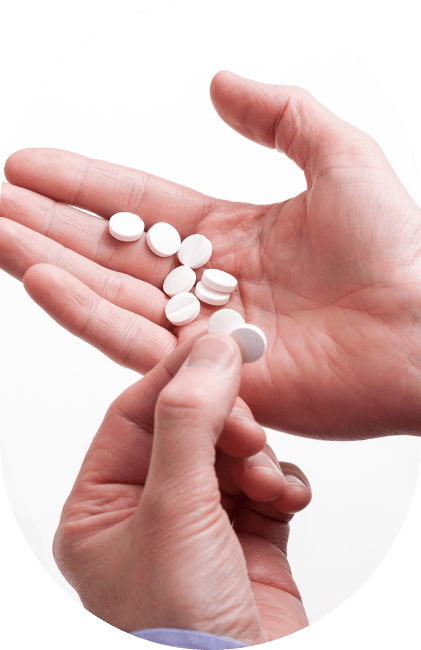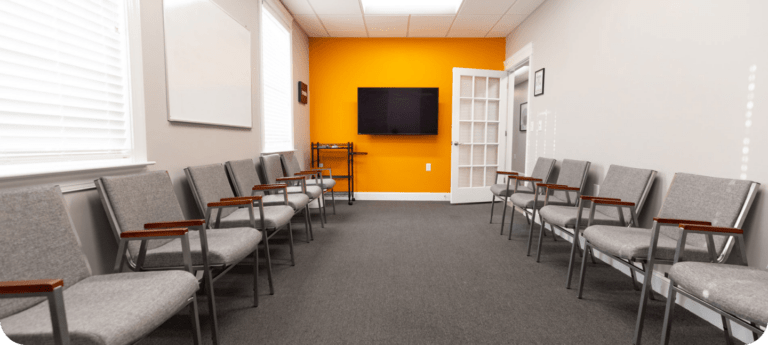Pursue A Comfortable Recovery When You Participate In A MAT Program
Substance use disorder and opioid use disorder can have significant negative impacts on your life. And what affects you will surely impact those you love, your career, and your life. But the thought of detox and treatment is overwhelming and a little frightening.
It doesn’t have to be this way.
Medication-assisted treatment can help you recover in comfort making it easier for you to start and finish your journey to a healthier, happier lifestyle. Become the best version of yourself after pursuing medication-assisted treatment. Pursue your Epiphany.
What Is Medication-Assisted Treatment?
The days and weeks of early recovery are often the most vulnerable. As the body changes and your brain chemistry begins to change, the cravings and withdrawal symptoms can be too difficult to manage, ultimately leading to relapse.
Medication-assisted treatment, also known as MAT Therapy, is a medical intervention for addiction treatment. Through the use of medications, clients experience reduced cravings, less intense withdrawal symptoms, and physical comfort during early recovery.
This process is managed by medical physicians who prescribe FDA-approved medications so you can begin recovery without fear or hesitation. Substances such as buprenorphine, Sublocade®, Suboxone®, and naltrexone are all evidence-based treatment options within opioid treatment programs.
All prescriptions are administered by providers alongside both group and individual counseling and behavioral therapy. This activates the deepest and most comprehensive level of care in the treatment of substance use disorders.
MAT Information
How Does Medication-Assisted Treatment Work?
Our Treament ProgramsMedication-assisted treatment combats the effects of opioids and alcohol with medication. These prescription treatment services help your brain and your body work together to overcome alcohol and drug abuse without sacrificing your overall well-being.
MAT therapy makes your recovery easier and safer.
Medication-Assisted Treatment For Alcohol Use Disorder (AUD)
The symptoms of detox and withdrawal from alcohol use disorder can range from mild to life-threatening and can be a severely uncomfortable experience. Many find it difficult to maintain their sobriety in the early stages of recovery.
By administering medication-assisted treatment like Vivitrol®, you will experience fewer symptoms, reduced cravings, and more success in your recovery.
Medication-Assisted Treatment For Opioid Use Disorder (OUD)
Medications such as Suboxone®, buprenorphine, Sublocade®, and naltrexone work in your brain to offset the effects of opioids, prevent euphoric experiences, and combat opioid addiction. Blending an opioid agonist (like naloxone) and a low-dose opioid (like buprenorphine) inhibits opioid receptors from achieving the “high” that often leads to addiction while also preventing potential overdoses.
What’s The Difference Between Medical Detox and MAT Medication Assisted Treatment?
Learn About DetoxMedical detox is a short-term treatment that is often the first stage of sobriety. Here, you will receive inpatient or outpatient healthcare to manage immediate and severe withdrawal symptoms while detoxing from drugs or alcohol.
A medical detox treatment facility offers 24-hour care and around-the-clock access to providers to monitor your progress, safety, and comfort.
Medication-assisted treatment is more long-term, usually six to twelve months. This approach offers continual support while continuing to receive prescription medications to alleviate the symptoms of withdrawal.
What Happens After MAT Treatment?
After a detailed intake assessment and before beginning any treatment at Epiphany Wellness, every client is given a custom and individualized treatment plan to address all of their concerns from a holistic approach.
An individualized treatment plan allows our providers to identify what interventions will be the most effective for you. From medication-assisted therapy to behavioral health, there is a wide range of solutions to help you safely navigate recovery.
Depending on what stage of recovery you’re in, the following treatment programs may be part of your ongoing treatment:
Medication-Assisted Treatment Alongside Behavioral Therapy: Why You Need Both
Medication-assisted treatment is only the beginning. It’s a holistic approach to helping you manage withdrawal symptoms and stay ahead of your cravings. But it’s not as effective for long-term recovery on its own.
By participating in behavioral therapy interventions while undergoing medication treatment, you will have the best opportunity to build long-term success. From Cognitive Behavioral Therapy and Motivational Interviewing to family therapy and Eye Movement Desensitization and Reprocessing (EMDR), these are the modalities that help you develop the coping and social skills you need to face and overcome many of life’s challenges, not just substance use or mental health concerns.
Patients who undergo MAT therapy and behavioral health treatment report improved recovery outcomes, more manageable withdrawal symptoms, reduced cravings, higher treatment completion rates, improved quality of life, better personal health and well-being, and lower odds of relapse.
At Epiphany Wellness, a comprehensive approach to treatment equips you to become the best version of yourself and design your future with intention. Start here.
What Can A Medication-Assisted Treatment Center Help With?
As a widely-accepted and evidence-based intervention, medication-assisted treatment is effective at treating a wide range of substance-related disorders. While not everyone is a candidate for MAT therapy, it may be a life-saving approach for those also battling mental health issues or a co-occurring disorder.

Opioid Use Disorder
Prescription opioids are often intended to help you overcome physical pain, but due to their effects and how they interact with the brain, they often lead to dependence. Opiate medications include painkillers like oxycodone (Oxycontin®, Oxypr ®), hydrocodone (Vicodin®), fentanyl, morphine, codeine, tramadol, and buprenorphine. Illicit opioids include opium and heroin.

Alcohol Use Disorder
Alcohol consumption is a widely accepted practice, and it’s often difficult to identify when you have moved from social enjoyment to physical and mental addiction. Medication-assisted treatment for alcohol addiction is a safe and effective way to turn the corner.

Benzodiazepine Dependence
Another prescription medication classification that is intended to help is benzodiazepines or benzos. These are claiming drugs that are prescribed to treat anxiety and insomnia. However, due to how the body interacts with the substance, they can lead to addiction if taken long-term. Benzo drugs include Valium®, Xanax®, Ativan®, and Klonopin®.

Stimulant Dependence
Stimulants like Ritalin®, Adderall®, Concerta®, and Vyvanse® are prescribed to treat attention-deficit hyperactivity disorder (ADHD) and narcolepsy. However, when taken long-term, the brain and the body become accustomed to their effects and can develop a strong dependence.

Co-Occurring Disorder
A Co-occurring disorder (or dual diagnosis) is when you are diagnosed with a mental health disorder and are also struggling with substance use. It is not believed that one directly leads to the other, but rather they can each make the other more difficult to manage. Holistic treatment is the most effective way to address both and pursue true personal healing.

Mental Health Disorders
The range of mental health disorders is as wide and complex as people themselves. Whether you’re suffering from anxiety, depression, post-traumatic stress disorder, ADHD, or a personality disorder, getting help is the most effective way to restore the balance in your mind and your body. We want to help you become the best version of yourself without missing out on the life you love.
Frequently Asked Questions About MAT Therapy
What medications are used in MAT?
The medications that are prescribed during treatment will vary depending on the substance in question. For opioid use disorder, Suboxone® and Sublocade® are common prescriptions. For alcohol use disorder, Vivitrol® is another common prescription.
How does MAT treatment work?
MAT treatment helps alleviate uncomfortable symptoms of detox and withdrawal by administering other medications to offset the experience. This improves your chances of long-term recovery and makes the experience easier to manage.
How long does MAT treatment last?
Each patient will be given an individualized treatment plan to match their individual needs and diagnosis. However, in most cases treatment usually lasts between six months to one year.
What are the benefits of MAT therapy?
The benefits of MAT therapy include a long list of mental and physical effects, especially when MAT therapy is paired with evidence-based behavioral health therapies. Our clients experience stronger recovery outcomes, they’re able to better manage detox and withdrawal symptoms, experience fewer and less intense cravings, are more likely to complete their whole treatment plan, and are less likely to relapse.
What is the difference between MAT and psychotherapy?
MAT therapy is a medical, prescription-based intervention. Psychotherapy is a therapeutic or talk therapy intervention. They are both effective at treating a variety of mental health and substance use disorders and are most effective together.
Pursue A Comfortable Recovery. Pursue Your Epiphany.
If you or a loved one are struggling with substance use or co-occurring disorders, we can help you face detox and long-term treatment without fear. Contact our admissions team today to begin your holistic treatment journey at Epiphany Wellness. You can do it. We can make it easier for you.